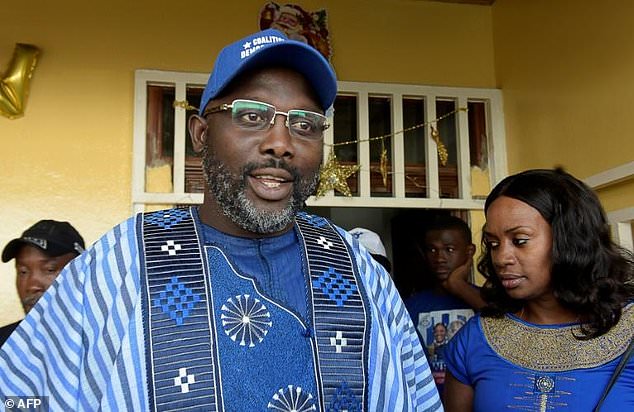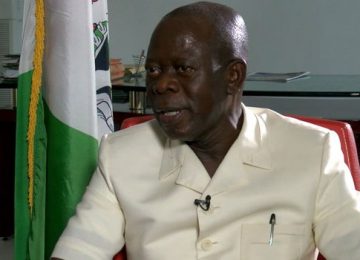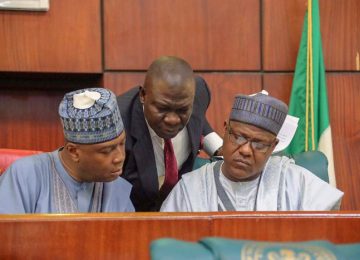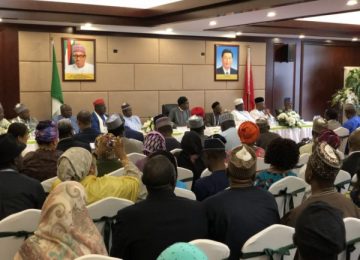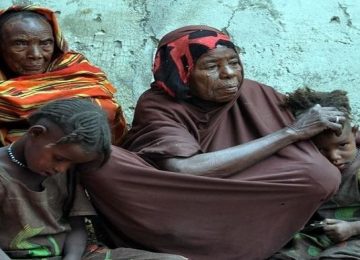Former soccer star George Weah, defeated Liberia’s Vice President, Joseph Boakai, to emerge winner in a delayed run-off election meant to usher in the first democratic transfer of power in more than seven decades.
The second round was followed by weeks of legal wrangling, which delayed the vote by more than a month. The Supreme Court ultimately dismissed a legal challenge brought by a third-place finisher in October’s first round, and backed by Boakai.
With 98.1 percent of the vote counted, Weah led with 61.5 percent to Boakai’s 38.5 percent, National Election Commission Chairman Jerome Korkoyah told reporters in the capital Monrovia.
Turnout in Tuesday’s vote stood at 56 percent, the election commission said.
The second round of voting fulfils the constitutional requirement of 50 plus one per cent for a candidate to be declared winner. Weah and Boakai secured the highest number of votes in the first round of the elections on October 10 among 20 candidates.
Weah will succeed Ellen Johnson Sirleaf, whose 12-year rule cemented peace in the West African country after civil war ended in 2003, and brought in much needed aid.
At his party headquarters outside Monrovia, tears streamed down Weah’s face as he greeted supporters from a balcony. Outside, young fans ran through the streets and blared car horns as dusk fell over the city.
Born October 1, 1966, Weah grew up in Clara Town slum in Monrovia and began playing league football in Liberia as a teenager. His life changed forever when, aged 21, Arsene Wenger spotted him playing for a team in Cameroon.
The manager brought him over to Europe, where he would play for AS Monaco. From there, it was on to Paris Saint Germain, AC Milan, Chelsea, Manchester City and Olympique Marseille. Weah won both FIFA World Player of the Year and the Ballon d’Or in 1995.
He entered politics after his retirement from the game in 2002 and defeated Ms Johnson Sirleaf in the first round in 2005 but lost to her in the subsequent run-off.
In the following election’s run-off, in 2011, when he ran as a running mate to the opposition candidate, his coalition boycotted the vote, citing irregularities.
Success finally came in 2014, when he was elected as senator for the western province of Montserrado, which includes the capital Monrovia.
Weah has positioned himself an outsider who will deliver tangible benefits to the country’s young population.
On the campaign trail, he promised to lower poverty levels by creating jobs in both infrastructure and agriculture.
Weah’s critics, however, say he has offered few concrete policy proposals. His choice of running mate Jewel Howard-Taylor – ex-wife of Charles Taylor, the former president and warlord serving 50 years in Britain for war crimes in neighbouring Sierra Leone – has also raised eyebrows.
Boakai, after casting his vote in Paynesville on Tuesday, promised to accept the outcomes “provided they meet all the standards.”
Earlier, Boakai said he doubted that the vote was “free, fair and transparent”, without elaborating. He did not say whether he might challenge the eventual result.
Liberia, Africa’s oldest modern republic, was founded by freed U.S. slaves in 1847, but its last democratic transfer of power occurred in 1944.
After a violent military coup in 1980 it experienced instability and civil war that ended only in 2003.
Ms Sirleaf took office in 2006, after her predecessor, Charles Taylor, was forced out by rebels in 2003, ending a long civil war.
Taylor is serving a 50-year prison sentence in the UK for war crimes related to the conflict in neighbouring Sierra Leone.


